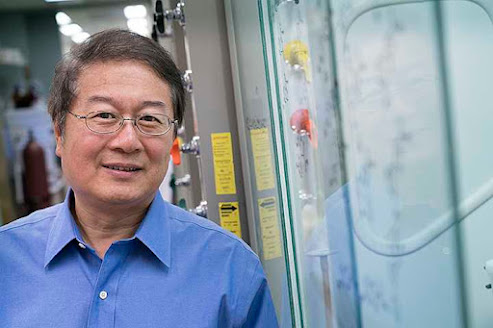Researchers in Purdue University's College of Pharmacy are further developing a potential immunotherapy treatment for cancer, one focused on the mutation of an enzyme.
"While recent progress in cancer immunotherapy has led to revolutionary success in multiple cancer types, most cancer patients do not benefit from immunotherapy. Thus, there is an urgent need for additional strategies," said Zhong-Yin Zhang, Distinguished Professor of Medicinal Chemistry, the Robert C. and Charlotte P. Anderson Chair in Pharmacology, head of the Department of Medicinal Chemistry and Molecular Pharmacology, and director of the Purdue Institute for Drug Discovery.
Zhang said cancer immunotherapy relies on T-cells to recognize and attack foreign substances such as tumors in the body.
"There is an intricate signaling network within T-cells that determines their activity," he said. "Previous studies have revealed that an enzyme called PTPN22 regulates the critical signals that activate them. People with a mutation in the gene have a lower incidence of cancer than people without the mutation.
"Moreover, mouse studies indicate that both the mutant PTPN22 and PTPN22 knockout show enhanced tumor immunity, establishing PTPN22 as a translatable target for cancer immunotherapy."
Zhang said no PTPN22 inhibitors are approved as drugs; they show poor selectivity for PTPN22 among similar enzymes and lack in vivo activity. He and his team developed a PTPN22 inhibitor that has yielded enhanced antitumor immune responses in mice studies.
"We have developed a novel fragment-based approach to engage both the active site and unique peripheral binding pockets," Zhang said. "We have developed inhibitors with high potency and selectivity as well as excellent in vivo efficacy."
The novel lead compound, called L-1, has no in vivo side effects and leads to reduced tumor growth and enhanced immune infiltration.
"Importantly, we demonstrated in collaboration with colleagues at Johns Hopkins University that PTPN22 inhibition by L-1 can be further leveraged to augment antitumor effects by immune checkpoint inhibitor anti-PD1," Zhang said. "These findings support that small molecule inhibition of PTPN22 is a viable approach for pharmacologic, systemic abrogation of PTPN22 in vivo."
The next steps to advance the work are to design, synthesize and test the next generation of inhibitors.
"We will improve the potency, selectivity and drug-like properties for clinical translation," Zhang said. "The goal is to develop a unique and innovative treatment strategy that has the potential to synergize with other immunotherapies."
Source/Credit: Purdue University
bio011322_03








.jpg)